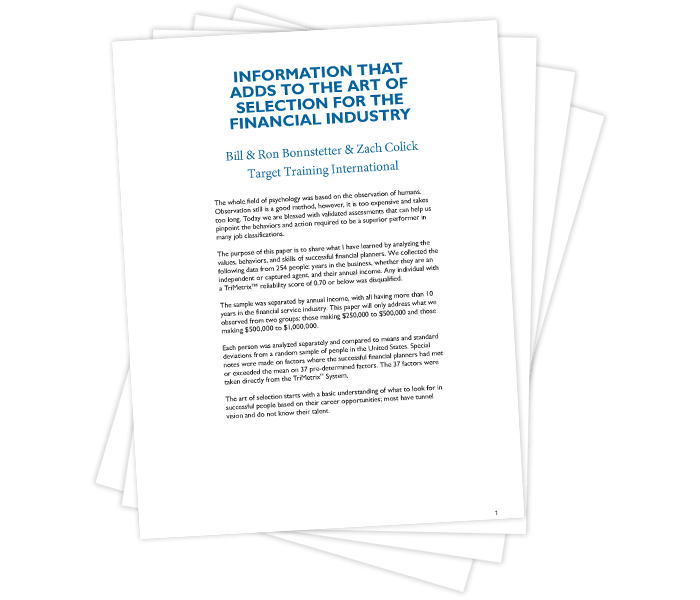
Oct 4, 2022
A newly formed Virtual Customer Service (VCS) Leadership Team at a Fortune 500 company participated in a virtual professional development program to help a new team connect quickly with the goal of increasing their effectiveness. The specific outcomes for this program were to: increase self-awareness for team members and how they and other members would contribute to the team’s success, as well as develop key insights into how to effectively communicate, collaborate and achieve the desired team results.
A brief explanation of the program provided as well as evidence of goal achievement.

Feb 17, 2022
The most successful financial planners are those that possess a high level of versatility and are able to easily adapt to change. They understand people very well, but they are also very focused on attaining good results. Because of the nature of their business, they are very structured and adhere to financial systems. They understand their roles and take pride in their work. While they focus on the present, many have the drive to further advance their careers and become even more successful.
The information presented in this paper to observe successful and un-successful financial planners. These observations will also carry over into other sales fields.

Aug 20, 2021
This paper demonstrates that when education programs are delivered as if all students have identical learning styles and needs, the students with unique learning styles are put at a disadvantage. On the other handed the authors also describe how the application of digital technology, in particular, the Internet of Things (IoT), is making inclusion possible and democratized education affordable.

Aug 20, 2021
This research provides data driven insights that can be used by engineering educators to better understand distinct segments of undergraduate students. Three clusters emerged that delineated students into three distinct typologies: Steadiness Compliance (SC); Influencing Steadiness (IS) and Dominance Influencing (DI) typology. This affirms once again that students are unique and individual differences require different teaching and learning approaches.

Aug 11, 2020
In the paper ‘Co-op education and the impact on the behaviors and competencies of undergraduate engineering students’, Dr. Nassif E. Rayess, Dr. David Pistrui, Dr. Ron Bonnstetter and Dr. Eric T. Gehrig used TTI Success Insights’ TriMetrix DNA assessment to gauge the effect of an internship experience on undergraduate students’ behaviors and competencies.




